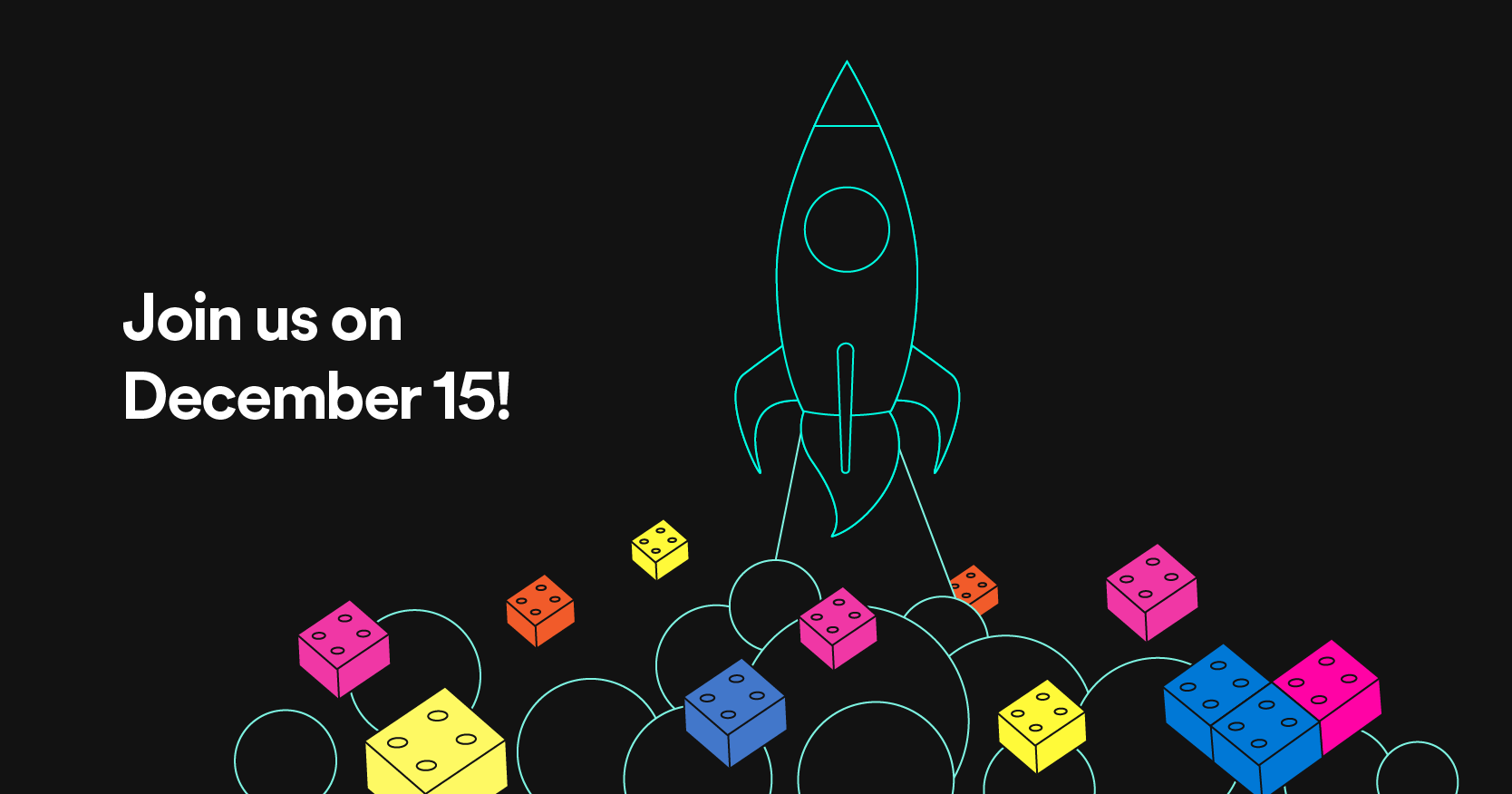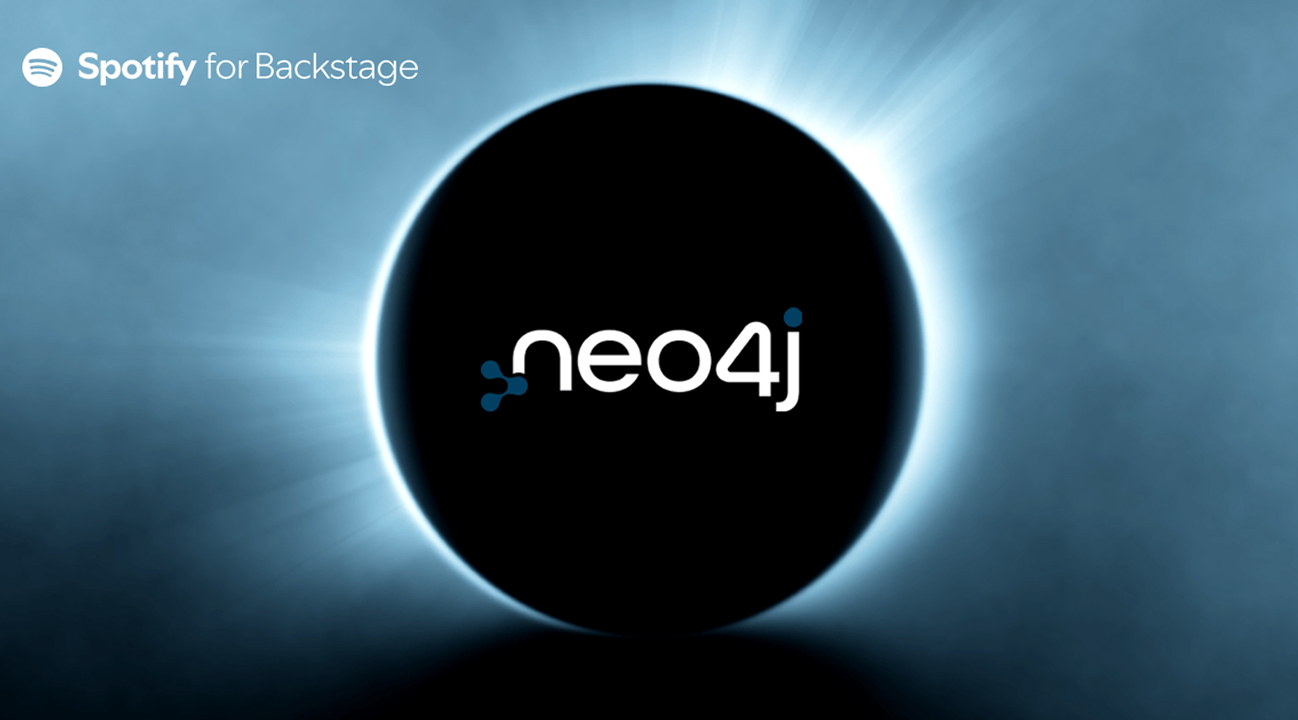Launching soon: Spotify Plugins for Backstage

Heading 1
Heading 2
Heading 3
Heading 4
Heading 5
Heading 6
Lorem ipsum dolor sit amet, consectetur adipiscing elit, sed do eiusmod tempor incididunt ut labore et dolore magna aliqua. Ut enim ad minim veniam, quis nostrud exercitation ullamco laboris nisi ut aliquip ex ea commodo consequat. Duis aute irure dolor in reprehenderit in voluptate velit esse cillum dolore eu fugiat nulla pariatur.

Block quote
Ordered list
- Item 1
- Item 2
- Item 3
Unordered list
- Item A
- Item B
- Item C
Bold text
Emphasis
Superscript
Subscript
tl;dr The Spotify Plugins for Backstage subscription is (almost) here! We’re putting together a bundle of plugins — made with love at Spotify — for Backstage adopters to accelerate their developer experience goals.
Register for our December 15 launch event where we’ll be unveiling more details about the bundle. After the event, we’ll share features and documentation for the plugins and how to sign up right here on backstage.spotify.com.
Skip to the “What’s in the bundle subscription” section if you’re already in the know on Backstage.
Backstage takes center stage
The house lights go down, the musicians pick up their instruments, and the show begins. What the audience pays attention to from that moment on is what’s right in front of them: the performance. What we forget about (unless a light blows out or an amp malfunctions) is the team of people behind the scenes — all those technicians and artisans running around in the wings and rafters, wrangling cables, adjusting sliders, and hoisting lighting rigs — all to ensure the performance we see on stage is a great one.
When we named our internal developer portal Backstage, it felt like an apt metaphor for technology that helps power the world’s largest audio streaming service. Backstage was built to address a near-universal challenge of complexity. To abstract away the messy parts of a sprawling, fragmented tech ecosystem and give space for developers to focus on what they do best: creating. Backstage is what enables great performances from our developers.
In the nearly three years since Spotify open sourced it, Backstage has become a mature and thriving platform for companies building their own developer portals. We’re now seeing 400+ adopters and 1500+ contributors across the globe using the core framework to create better experiences for hundreds of thousands of their fellow developers. Backstage has been adopted by enterprise companies in healthcare, gaming, manufacturing, government, and more. Companies that look and feel a lot like Spotify and companies that don’t.
Spotify Plugins for Backstage: A bundle of productivity
Our goal has always been pretty simple: we want to make Backstage a critical part of everyday workflow to help developers everywhere be happier and more effective. That’s why Backstage is an open source platform and why Spotify is continuing to build with and support the open source community. Last year, when we first shared our intent to commercialize products for Backstage, we talked about how we've only just begun tapping into the potential of Backstage and sharing all that it has done for us at Spotify.
Today, I’m happy to share the next step on that journey: Spotify Plugins for Backstage — a paid subscription that will soon be available to all Backstage adopters. The bundle subscription includes two kinds of plugins: (1) new external versions of some of the most popular plugins we’ve been using inside Spotify for years, and (2) plugins specifically created to unlock more value for companies using Backstage. All of these premium plugins complement the open source plugins we already provide, bringing even more of Spotify’s experience and maturity with Backstage to the platform.
What’s in the bundle subscription?
We’re launching with a set of plugins that address different aspects of developer experience and engineering culture. We developed this bundle with feedback from a core group of customers — and now that these versions of the plugins have been road-tested, we’ll offer beta versions to all our Backstage adopters soon (very soon!). Alongside the plugins themselves, customers can expect support and services to help them get up and running when they buy the bundle.
Spotify Plugins for Backstage leverage key features of the Backstage platform: its role as a central hub for all your engineering teams where they do their everyday work, creating data-driven feedback loops between your platform teams and your feature teams to continuously strengthen and improve your internal developer community, and of course, the streamlined UX that reduces complexity and makes it so easy to use.
Meet the plugins
Spotify Plugins for Backstage are aimed at solving common development challenges, reducing operational toil, encouraging best practices, and improving collaboration, transparency, and learning throughout your engineering org — you know, all those things that pave the way for happier developers and happier code. Here are the plugins that will be available in the bundle.
Soundcheck: See how well your components measure up to engineering best practices and standards at a glance. When owners can easily see the tech health of their components, it incentivizes quality, reliability, and alignment throughout your software ecosystem. The Soundcheck plugin visualizes checks for security, testing, reliability, and other development and operational standards. And seeing leads to doing. So instead of asking your developers to file and respond to yet another ticket, promote software quality through clear scorecards, actionable feedback, and positive reinforcement.
RBAC: Manage access and protect your data in Backstage, flexibly and easily. Role-based access control (RBAC) should be as easy to manage as possible — because the simpler it is to do, the better protected your data will be. Built on top of the open source permissions framework for Backstage, our RBAC plugin provides a no-code management UI for restricting access to plugins, routes, and data within your developer portal. With its intuitive interface, admins can quickly define roles, assign users and groups, and configure permissions to encode authorization decisions according to your organization’s evolving security and compliance needs.
Skill Exchange: Share expertise across your org by creating an internal marketplace for on-the-job learning opportunities and promoting a culture of self-led growth. Talent, knowledge, and experience can often get trapped inside organizational silos. With the Skill Exchange plugin, now your R&D community can unlock opportunities for collaboration and meaningful connection, no matter where anyone sits in the org chart. Mentors can connect with mentees, teams can connect with temporary help, developers can pair up to program together, and ad hoc teams can assemble to work on hack projects.
By making it easier for your developers to discover and borrow each other’s skills, both teams and individuals can learn, grow, and stretch their abilities together — leading to happier, more fulfilled, and more capable devs — no orientation required.
Pulse: Find out how your R&D teams really feel. Pulse is an R&D survey framework that lets you track key productivity and satisfaction metrics, analyze the anonymized response data to discover trends, and visualize those insights (all within Backstage). Pulse focuses on the concerns of developers and other members of your tech community, telling you everything general HR surveys can’t — from what your data scientists think about your workflow tooling to the most common blockers teams say they’re facing.
By helping you quantify developer satisfaction and effectiveness, the Pulse plugin allows you to collect the data you need to drive continuous improvements to your R&D tooling, processes, and culture — and ship code faster.
Insights: Surveys are great for capturing how your people feel. But you also want to know how they’re actually behaving. The Insights plugin is your window into Backstage usage at your organization. It captures and displays key data points, including your daily active Backstage users and most commonly used plugins. With the Insights plugin, you can measure Backstage adoption, understand user behavior, and identify trends. Knowing how your teams are using Backstage today helps you meet the demands of tomorrow.
Why is Spotify selling plugins?
We love a freemium business model here at Spotify. Our investment with Backstage is following suit with our consumer offerings — in this case, the subscription is meant to enhance what’s available in open source. The overarching question we asked when developing these plugins was, “Will this make Backstage more useful and powerful for open source adopters?” And that’s the question we’ll continue to ask as we evolve the subscription.
We hope that by adding paid plugins from Spotify to the other commercial services surrounding Backstage, the platform becomes more valuable to current adopters, we’ll broaden its reach to new adopters, and we’ll create a more diverse ecosystem for the community at large.
Sustaining the platform and the community
The bundle subscription is also how we see Spotify continuing to sustain its investment in Backstage. Revenue generated from the bundle can be reinvested into developing and releasing more plugins — including more of the 200+ plugins we use internally — and evolving Backstage further. We see this is a good thing for our community, for our teams, and our customers.
But to be clear: Spotify is not moving away from open source contributions or the Backstage project community. Instead, we’re doubling down on Backstage, and the bundle subscription enables Spotify to continue to grow our investment in the open source project and community.
A core part of our company mission is to unlock human potential and creativity. Developers are creators — some of the most prolific creators given that every company is now a technology company. We believe they need a better experience to do their best work and that's what we’re aiming to provide with both Backstage and the Spotify Plugins bundle.
When will the bundle subscription be available?
The bundle subscription is coming soon to a repo near you! We’re hosting a launch event on December 15 to share more. Register here to watch the event and learn more about the plugins and how to buy the bundle.
